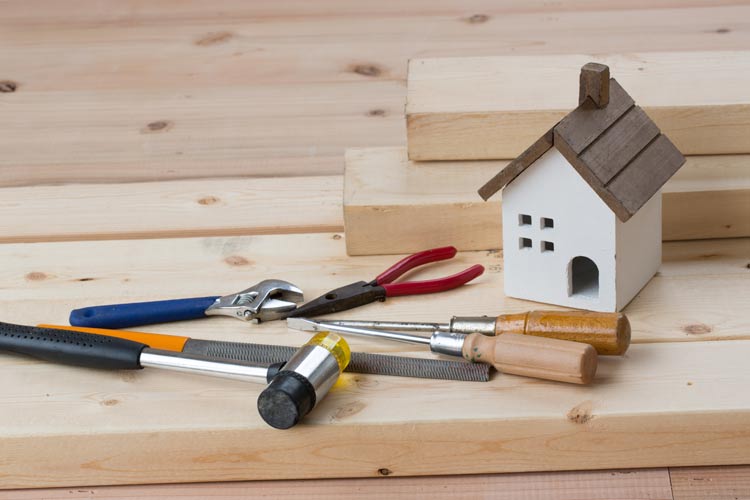
If you’re considering starting a business in the retail industry, you might be interested in joining a tool franchise. The home improvement sector is booming at the moment, with more and more people getting stuck into DIY - or hiring contractors to do the job for them.
Last year, Brits spent a combined total of £7.18 billion on tools for the house and garden. But in 2020, sales soared, as a result of the Covid-19 lockdowns. By the end of March, online sales of building materials, paints and plants reached record levels, resulting in a year-on-year increase of up to 48 percent (Statista).
Why start a tool franchise business?
- Demand is on the rise - people are increasingly deciding to upgrade their home, rather than move house
- Working under a reliable brand, you’ll be able to reassure customers they’re investing their money in high-quality tools
- By investing in a tool franchise, you can benefit from a tried and tested business model, avoiding the mistakes you might make if you were to set up a company from scratch
- You can establish consistent income streams by partnering with construction and home improvement companies for ongoing contracts
- You can conduct market research to find the most profitable items - for instance, nails, screws and adhesives are the most popular DIY tools (Statista)
- You can boost your revenue by selling products online as well as in a physical store, as more and more people turn to the internet to make purchases
- You’ll help people create their dream homes, offices and business properties, which should help you achieve high job satisfaction levels
Franchise options in the tool franchise sector
1. Mr Arkwright’s Tool Emporium
Mr Arkwright’s Tool Emporium was set up in 2012 by Clive Owen, with the aim of catering to everyone from DIY newbies to professional builders. The tool franchise now sells a diverse range of more than 50,000 tools and products, including electrical goods, baking accessories, bathroom and plumbing equipment and even furniture.
- Becoming a Mr Arkwright’s Tool Emporium franchisee: As a franchisee, you can reach a potential profit margin of 60 percent, with a yearly turnover of more than £200,000.
- How much you need to invest: You should be prepared to pay an initial investment of between £45,000 and £80,000.
- What you get for your investment: The franchise offers a week of initial training, which covers inventory, sales, business operations and customer support. You’ll also get plenty of help with the advertising process, with access to print ads, flyers and coverage on the business’s website to boost your new business unit. The Mr Arkwright’s franchise package even includes a full shop fitting, EPOS system and CCTV system.
>> Read more:
2. Mac Tools
Mac Tools has a long history in both the UK and the US. It was originally founded in 1938 in Ohio, but quickly expanded across America and made the move to the UK in 1960. The franchise now has a network of 170 units and has worked hard to refine its business model.
- Becoming a Mac Tools franchisee: Mac Tools specialises in selling high-quality tools to business and individuals around the UK. Franchisees will take their mobile showroom to garages, dealerships and engineering units, selling equipment to a wide array of customers across their exclusive territory.
- How much you need to invest: Mac Tools is considered one of the most affordable franchises in the hardware industry. A total investment of £50,000 covers the cost of a van, tools, equipment and training.
- What you get for your investment: All franchisees are granted the right to trade using a Mac Tools van. The set-up fee includes all the stock you'll need to get you started, plus a comprehensive training scheme. Every franchisee gets the chance to take part in a two-week residential course covering product knowledge, business management, sales techniques and digital systems. The franchise also organises ongoing guidance and support, as well as regular networking events.
>> Read more about: Hammer Home The Benefits Of Starting A Tool Franchise
3. Snap-On
Snap-On began life as an American tool manufacturer and famously developed a unique product based around 10 ‘snap-on' socket heads that could be used with a number of different handles.
The company was founded in 1920, and reached the UK in 1965. By the mid-1970s, the tool franchise had developed a network of more than 100 franchisees in the UK alone. Today, there are more than 430 franchise partners representing the brand across the UK and Ireland.
- Becoming a Snap-On franchisee: Snap-On franchisees deliver new and innovative tools and equipment to businesses in the construction and home improvement sectors. As an investor, you’ll supply products to customers in garages, showrooms and body workshops.
- How much you need to invest: If you're considering becoming a franchisee, you'll need to make an initial investment of £24,143 and Snap-On will fund the remaining costs through a 10-year, interest-bearing loan. By making regular fixed payments, franchisees can comfortably and confidently manage their cash flow.
- What you get for your investment: All franchisees get the chance to attend a training course at Snap-On’s UK head office, located in Kettering. During your time there, you’ll find out how to operate the Snap-On business model and develop all the skills you’ll need to sell your products and grow the business. Snap-On also runs regular networking events and provides regional sales specialists to help with your professional development.
Starting a home improvement franchise
Demand for tools and other home improvement products is on the rise, so there’s plenty of potential for success as a franchisee in this industry. You can browse our full range of current tool investment opportunities, or increase your options by looking at franchise openings in the wider home improvement and construction sector.
Here at Point Franchise, we have lots of resources for those interested in running a franchise unit. Take a look at our articles or use the search box for specific topics.
Alice Tuffery, Point Franchise ©
>> Read more articles on the Construction sector






0 Comments